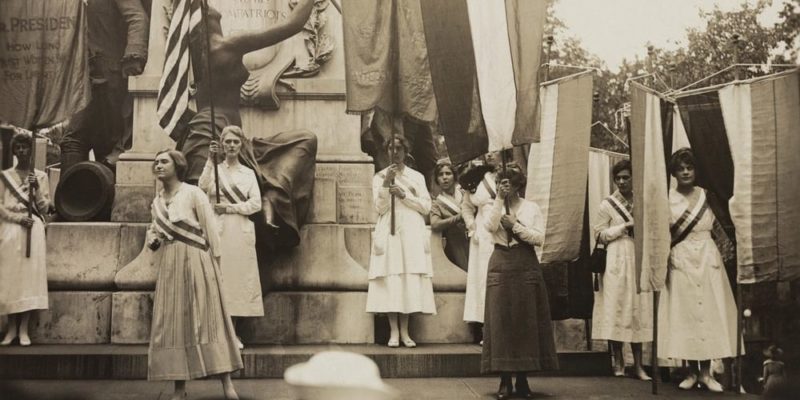We explain what suffrage is, its characteristics, functions and types that exist. Also, differences between voting and suffrage.

What is suffrage?
Suffrage (or right to vote) is the political and constitutional right to participate in electoral events, that is, It is the right to vote to elect public offices and make political decisions. It is a concept as old as democracy, linked to eligibility for political participation, since every system of democratic consultation presents its minimum requirements, which have changed substantially throughout history.
Thus, for example, in Athenian democracy only male citizens, free, of legal age and Athenian by birth, could have a voice and vote. On the contrary, in modern democracy gender distinctions have been abolished (thanks to the fight for women's suffrage) in favor of a model of universal suffrage.
Even so, there are constitutional restrictions regarding who has the right to vote, depending on each country. In some, foreign residents do not vote, for example, or vote only in certain elections.
The suffrage Today it is inseparable from democracy so that the guarantee of universal, free and secret suffrage is the minimum that is required of a government to be called democratic (although, on the other hand, that alone is not enough to guarantee the functioning of a democracy).
But, in modern democracies, the possibility of voting is granted without distinction of race, religion, sex, or sexual orientation, and without the need for qualifying exams. It is only required that the established minimum age and a minimum mental health requirement be met.
See also: Plebiscite
Characteristics of suffrage
Understood in the terms of modern democracy, suffrage is characterized by being:
- Free: It is exercised according to one's own will and conscience.
- Universal: Without restrictions other than the age of majority and mental sanity.
- Secret: This avoids repercussions, extortion or punishment from the powerful.
In addition, it covers two forms of law:
- Active suffrage: It is the possibility of choosing.
- Passive suffrage: It is the possibility of being elected.
The term is often used to refer to voting (that is, voting), but they are not really the same thing.
What is the function of suffrage?
Suffrage fulfills the purpose of political participation, that is, allows citizens to play some role in running their states through the election of political representatives, the approval of measures consulted with the people, or the nomination to play a role in the leadership of the State. When suffrage exists, people have the right to participate politically.
Types of suffrage

We can differentiate some types of suffrage, beyond the active (right to choose) and passive (right to be elected), such as the following:
- universal suffrage when all citizens of legal age and legally able to do so can participate in the running of the country, without distinction of race, creed, sex or sexual orientation.
- Restricted suffrage when only a certain group of citizens has the right to vote and be voted for, as happened in South Africa during the years of “apartheid”, a system of racial exclusion that, among other things, prevented blacks from voting.
- Mandatory suffrage is the one that governs in certain countries in which voting during an election of any type constitutes a constitutional mandate and therefore cannot be avoided or evaded without receiving some sanction.
- Voluntary suffrage is the one that governs countries where voting is completely optional and does not constitute an obligation, but only a right.
- Women's suffrage the name given to the historical struggle by women's groups for the right to vote. The nickname of its militants is famous: “suffragettes”.
Vote and suffrage
When talking about voting and suffrage, we do not necessarily talk about the same thing, although it is possible to use the second term as a metaphor for the first. That is, we can talk about suffrage to refer to voting, but they are not really the same.
The vote is the action of voting to go to the electoral polls and make a decision on the matter consulted; while suffrage is the right to vote that is, the right to carry out said action, either as a voter or as a candidate. So voting is a concrete action, while suffrage is a citizen right.
Continue with: Types of democracy
References
- “Suffrage” on Wikipedia.
- “Suffrage” in the Dictionary of the language of the Royal Spanish Academy.
- “What is the difference between suffrage and voting?” in Canal Caribe (Cuba).
- “Suffrage (government)” in The Encyclopaedia Britannica.





